
In honor of Thanksgiving, here’s how 10 successful entrepreneurs turned their ideas into reality — in their own words.
Travis Grillo, founder and CEO of Grillo’s Pickles
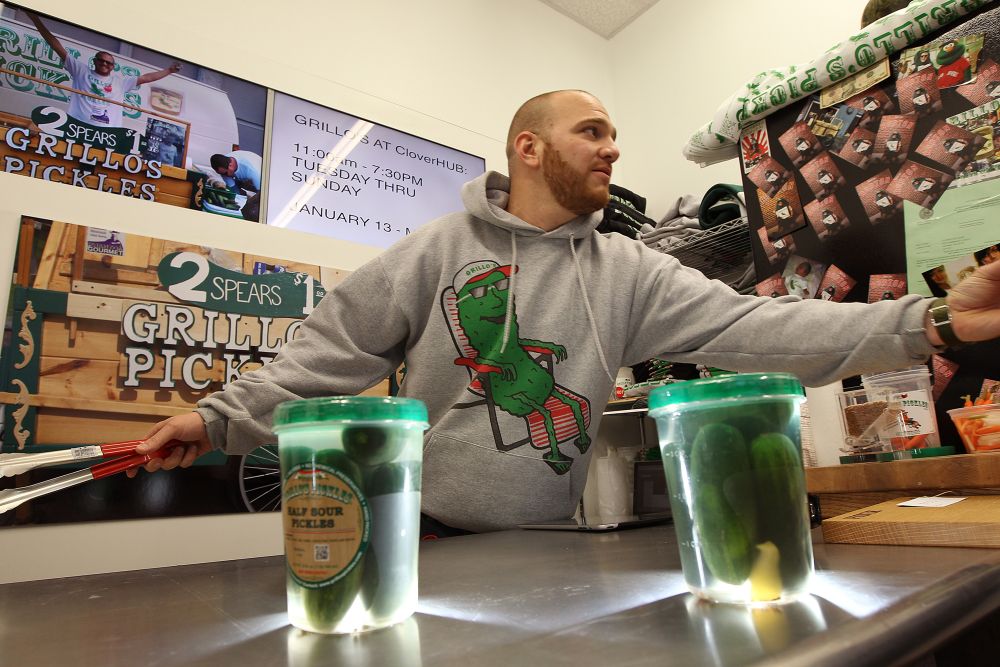
Image credit: Boston Globe | Getty Images
What’s the big idea? After Travis Grillo didn’t get a shoe designer job at Nike, he turned the sour moment into something sweet and founded Grillo’s Pickles.
“After getting denied a job at Nike, I came home and had that lightbulb moment,” said Grillo. “I decided to start selling my grandfather’s garden-fresh, 100-year-old pickle recipe. I started the business out of the back of my 1985 Cutlass Supreme selling at baseball games, parks and the Boston Marathon. Eventually, I upgraded to a hand-built, wooden pickle cart that I set up rain or shine in the Boston Common and was selling two spears for $1.”
By the numbers: Grillo’s Pickles has grown into a multimillion-dollar business ranked by Nielsen as the number-two refrigerated pickle brand in the United States.
Read more about Travis Grillo: How This Entrepreneur Turned a Sour Job Interview Into a Multi-Million Dollar Pickle Business
Jessica Alba, founder of The Honest Company and Honest Beauty

Image credit: Ernesto Ruscio | Getty Images
What’s the big idea? After dealing with skin sensitivities and multiple illnesses, actress Jessica Alba was determined to create a wellness brand focused on safe products, clean standards and ingredient transparency.
“The Honest Company was my first business idea and it certainly wasn’t easy getting it off the ground,” said Alba. “I don’t have a typical business background or degree, so I had to learn everything on the fly — and I had to get over my own anxiety about not having the typical business trajectory or schooling. I doubled down on what I knew from my experience and made a point of partnering with people who had experience that I didn’t. It took time to refine my concept and find co-founders who believed in the mission as deeply as I did, but I knew this was a company that needed to exist. I didn’t stop until it did.”
By the numbers: At its highest valuation, The Honest Company was said to be worth $1.7 billion in 2015. The company’s baby, personal care and beauty products are available in North America at more than 23,000 retail locations.
Read more about Jessica Alba: Jessica Alba Shares the Routine That Helps Her Run the Multimillion-Dollar Honest Company
Eugene Kang, founder of Country Archer

Image credit: Courtesy of Country Archer
What’s the big idea? Eugene and Susan Kang were on a trip to the Grand Canyon when they discovered jerky at a roadside stand. They loved the meat snacks so much that they decided to track down the maker: butcher Celestino “Charlie” Mirarchi. The trio went into business together and started Country Archer.
“We weren’t going to be a marketing company right off the bat,” said Eugene Kang. “The fact that I was really focused on the operational side of the business helped. When we came in, boxes of meat were being offloaded from trucks at 6 in the morning. It was so old-school-operated that it was mind-boggling. We had to buy forklifts. A lot of our capital investments went in early to equipment and operational stuff. We pulled a Field of Dreams — we built it before the sales came.”
By the numbers: Country Archer’s revenues were $33 million in 2018. The company’s products are available at retailers including Whole Foods, Kroger, Starbucks and Costco.
Read more about Eugene Kang: This 29-Year-Old Entrepreneur Discovered, Then Bought, a Small Jerky Brand in 2011. It Brought in $33 Million Last Year.
Lisa Curtis, founder of Kuli Kuli
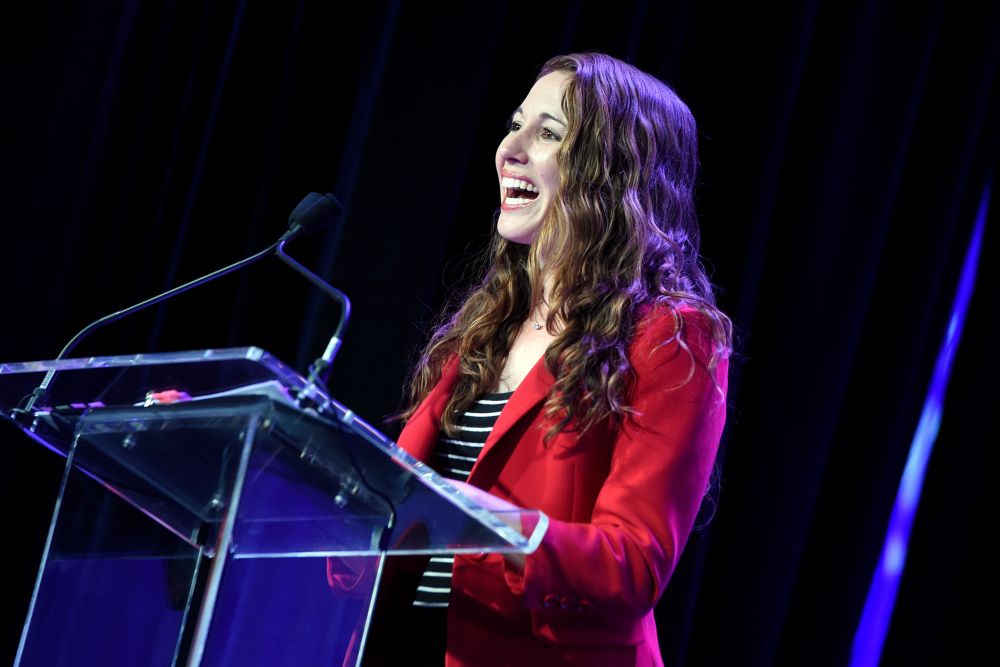
Image credit: Stephen J. Cohen | Getty Images
What’s the big idea? Lisa Curtis was introduced to the moringa plant when she was volunteering for the Peace Corps in Africa. She founded Kuli Kuli in 2014 with a dual purpose: to introduce the world to the health benefits of the plant and to help women in West Africa earn a sustainable livelihood.
“Sometimes, entrepreneurs do everything they can to be big,” said Curtis. “Often, they don’t appreciate the benefits of being small and nimble — and being able to make something in a kitchen on Saturday, sell it at the farmer’s market on Sunday, realize that it’s not working and create something totally different the next week. That iteration process is important.” She added, “The non-glamourous part of the first year of starting Kuli Kuli was that most of my life was spent selling us into stores and then doing demos and passing out bar samples to customers.”
By the numbers: In February, Kuli Kuli raised $5 million in funding led by Griffith Foods and Kellogg’s. The company sells a variety of moringa products including energy bars, moringa powder and smoothie mixes in 7,000 stores.
Read more about Lisa Curtis: This Extreme Extrovert Started a Multimillion-Dollar Wellness Snack Company After Her Stint in the Peace Corps Was Cut Short
Nicole Miller, founder and CEO of Nicole Miller
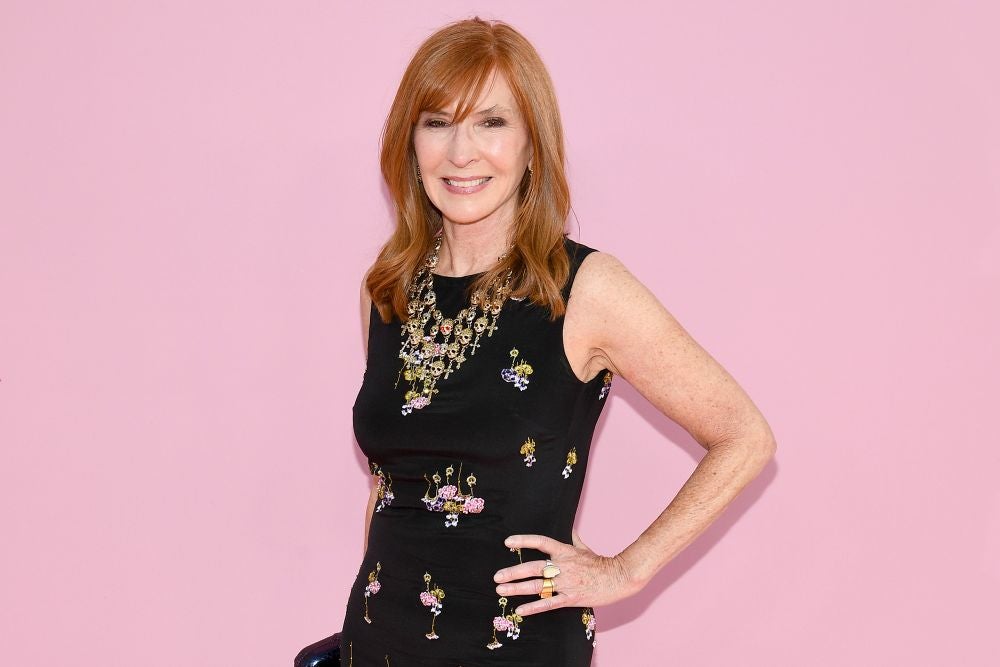
Image credit: Dimitrios Kambouris | Getty Images
What’s the big idea? It took $100,000 for trained designer Nicole Miller to shake up the fashion world. In 1982, she scraped the money together to launch her namesake brand with co-founder and late CEO Bud Konheim. Within a year, Nicole Miller’s silhouette dresses were all the rage.
“Fortunately, that first year, I made this smocked-hip blouson dress that I think everybody in the United States bought,” she said. “We made a gazillion of them, and back then, they were very avant-garde and cool and hip. But after making them for two years, it started to look kind of dumb, and by then everyone was making a version of it, so we stopped. But now it’s coming back — that whole look. I think I saw one at Zara or something like that, and I was flattered.”
By the numbers: Nicole Miller is a multimillion-dollar brand that sells womenswear, shoes, fragrance and kitchen products in over 1,500 specialty and department stores worldwide.
Read more about Nicole Miller: Designer Nicole Miller Shares How She’s Learned to Embrace Social Media, Influencers — and the Need for Resiliency
Caroline and Isabel Bercaw, founders of Da Bomb Bath
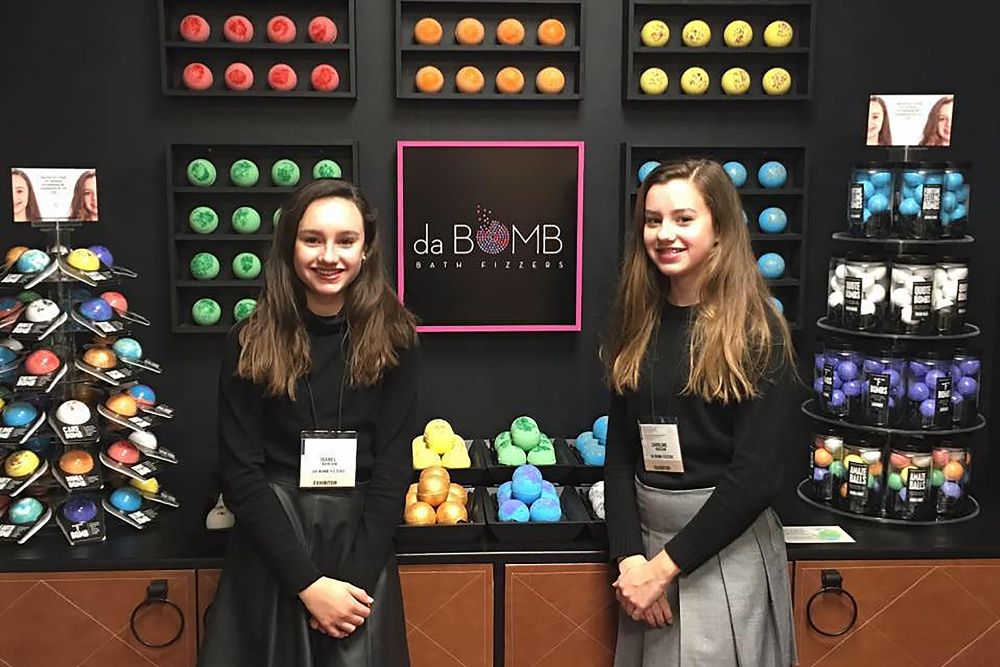
What’s the big idea? Caroline and Isabel Bercaw were obsessed with bath bombs, but they were frustrated with how the fizzers stained their tub and skin. As a hobby, the 10- and 11-year-old sisters began making their own bath bomb recipes at home. After selling out of the product at two art fairs, they realized Da Bomb Bath could be a real business.
“We never had any formal business education, but our education was really our curiosity,” said Isabel. “We’d ask our parents questions, research online, call business owners. We’d just reach out to anyone. And I don’t know if it’s because we live in Minneapolis, but people were super nice and willing to help.”
“Isabel and I were and are the market for these products,” said Caroline. “We knew what was exciting for us, and we also knew that a lot of products on the market focused on the relaxation aspect of bath bombs. And that’s great, but we saw the opening for the idea of fun and decided that’s what our brand would be about.”
By the numbers: More than six years after launch, Da Bomb Bath remains self-funded and generates more than $20 million in annual revenue. The company’s products are available in retail stores including Target, Ulta Beauty, Hot Topic and Box Lunch.
Read more about Caroline and Isabel Bercaw: How These Teen Sisters Make $20 Million a Year on Bath Bombs
Alexandra Cristin, founder and CEO of Glam Seamless
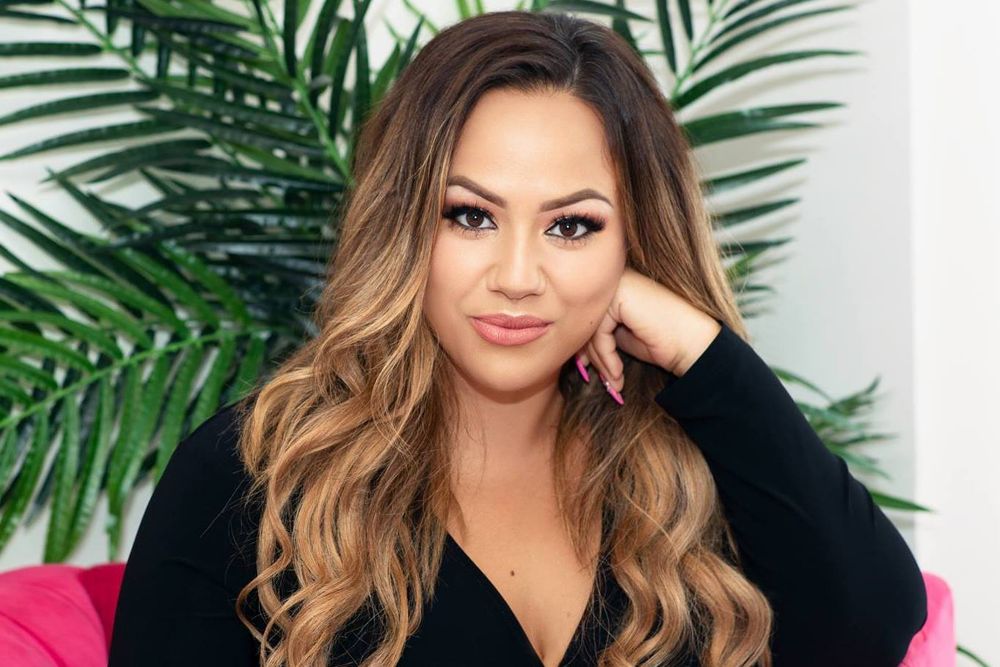
What’s the big idea? Model Alexandra Cristin has worn hair extensions since she was 14 years old. In 2012, Cristin’s stylist introduced her to tape extensions. Cristin was surprised she couldn’t find any affordable, salon-quality options online. The 23-year-old turned her passion into a business and founded Glam Seamless.
“It wasn’t easy by any means,” she said. “I worked 100-hour weeks to get where I wanted. With an inventory-based business, you need to put up the cash first. Because of my age, getting a loan was difficult.”
“If you decide to start a business with little to no money, it will be a little slower at first, but if it’s the right product or service and you [are] truly solving an issue for the customer, it will take off,” she added.
By the numbers: Glam Seamless is an extension brand that was bought by Beauty Industry Group (BIG) in February. Cristin’s beauty empire also includes a hair extension training program and a hair extension bar in New York City.
Read more about Alexandra Cristin: How Model Alexandra Cristin Turned Her Brand Into an 8-Figure Empire
Eric Yuan, founder & CEO of Zoom
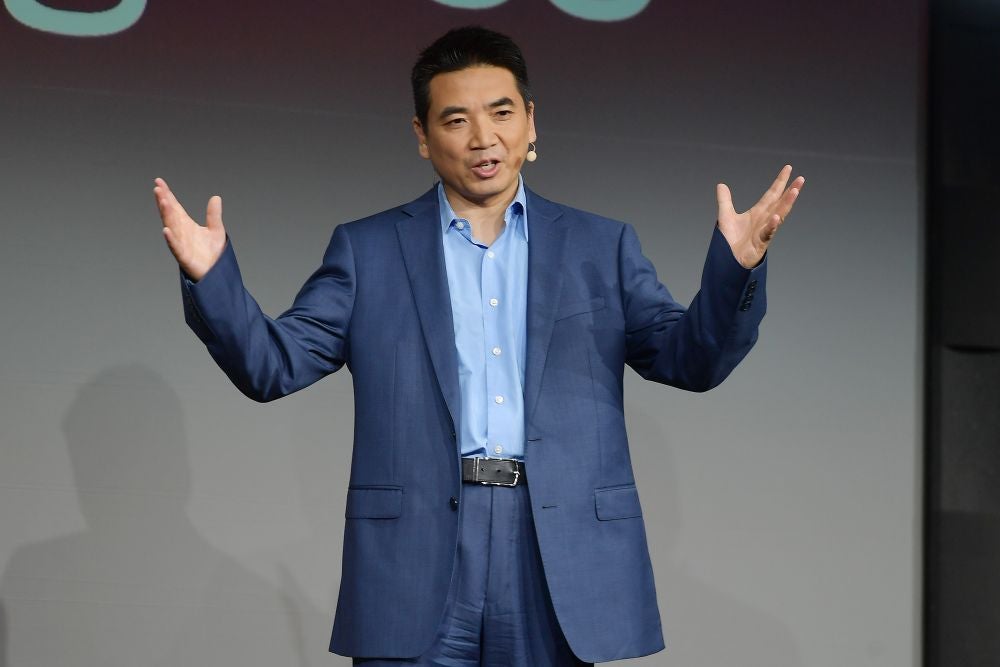
Image credit: Matt Winkelmeyer | Getty Images
What’s the big idea? Eric Yuan was a founding engineer and vice president of engineering at WebEx. When the company was acquired by Cisco in 2007, the integration didn’t go as planned. Customers grew unhappy, and so did Yuan. In a leap of faith, he quit his job in 2011 and launched the video communications company Zoom.
“I wanted to spend my days delivering happiness, and I knew I had to take charge of my own destiny to do that,” Yuan said.
“This risk ended positively as most of the solutions in the market weren’t working well for customers, so it didn’t matter how many vendors there were,” he added.
By the numbers: Zoom went public in April 2019. As of November 2019, the company had a market cap of $19 billion. In September, Zoom reported second-quarter earnings of $5.5 million on revenue of $145.8 million.
Read more about Eric Yuan: Eric Yuan Explains the 6 Simple Tactics He Used to Build Zoom Into a $20 Billion Business
Trina Spear, co-founder & co-CEO of FIGS
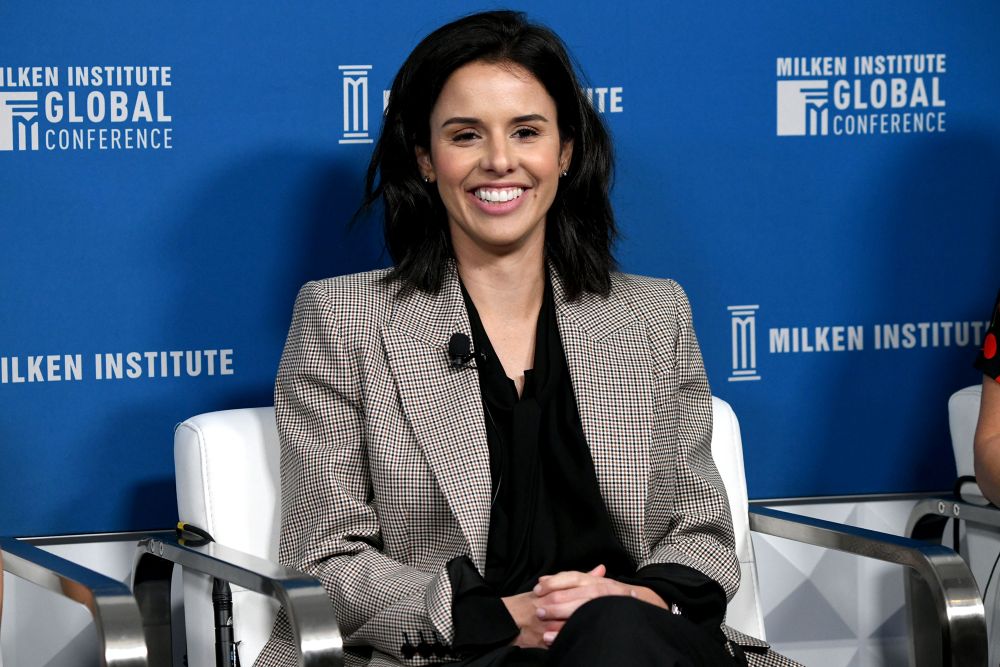
Image credit: Michael Kovac | Getty Images
What’s the big idea? Heather Hasson wanted to improve the look and feel of scrubs for medical professionals. In 2012, Hasson’s idea was in the early stages. When Trina Spear heard about Hasson’s vision, she wanted to join forces. Spear left her Wall Street job, liquidated her 401(k) and teamed up with Hasson to expand FIGS.
“It was that curiosity that enabled us to say, “Wait a second — this doesn’t make sense, and these people deserve something better,” said Spear. “You see that around the world with disruptive companies: It’s about looking around at something and saying, ‘This doesn’t make sense to me, and it probably doesn’t make sense to somebody else, so why not come up with a better solution?’”
By the numbers: FIGS brought in $100 million in revenue last year. Spear says within the next five years, it’s her goal to have FIGS in every country around the world.
Read more about Trina Spear: This Woman Entrepreneur Liquidated Her 401(k) to Co-Found Her Company. Now, It’s Bringing in $100 Million.
Melanie Perkins, co-founder & CEO of Canva
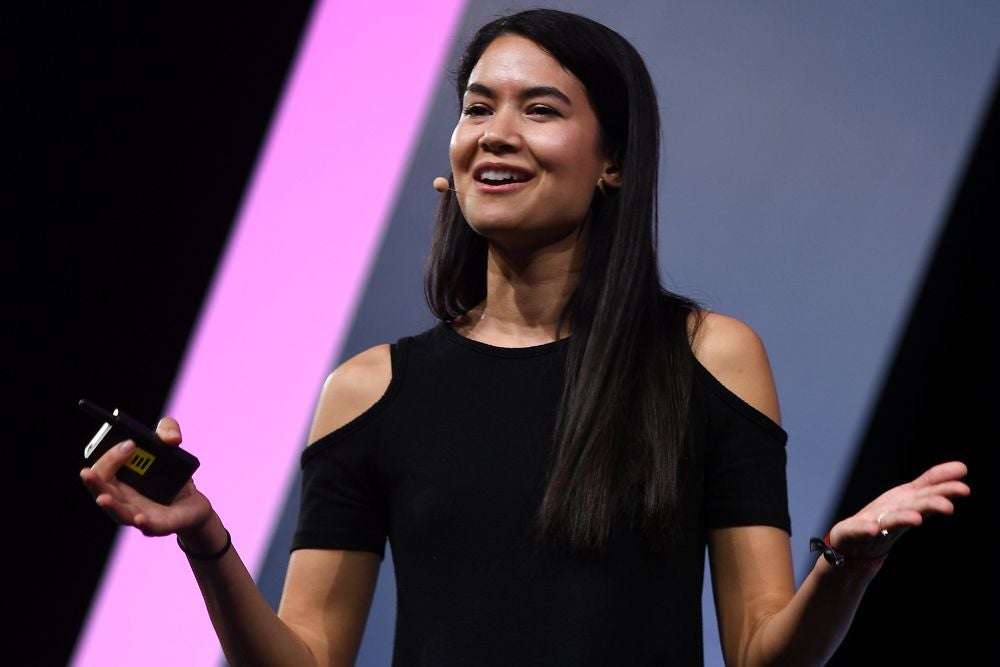
Image credit: Eóin Noonan | Getty Images
What’s the big idea? Melanie Perkins was 22 years old when she founded Fusion Books with co-founder Cliff Obrecht. Fusion Books is an online design tool that helps schools pull together their own designs for yearbooks. The partners saw how Fusion’s technology could be applied more broadly and created the design platform Canva.
“One of our values at Canva is to set crazy big goals and make them happen,” Perkins said. “This has been essential to getting Canva off the ground but even more so to take Canva to the next level. Having crazy big ideas and chasing after them can be intimidating, but it pushes you to try harder and dream even bigger.”
By the numbers: Canva boasts of 10 million registered users in 190 different countries. The company’s valuation was $3.2 billion as of October 2019.
Read more about Melanie Perkins: She Was Told ‘No’ 100 Times. Now This 31-Year-Old Female Founder Runs a $1 Billion Business.



Comment (0)